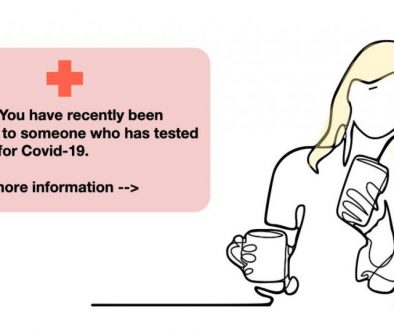Amazon Workers In At Least 10 Warehouses Test Positive For Coronavirus
A growing number of cases — in New York, California, Texas and at least six other states — could … [+]
Amazon workers in at least 10 U.S. warehouses have tested positive for coronavirus, marking an escalation at the company that could endanger the health of its workforce as well as its ability to deliver food and other household staples to millions of Americans unable to leave their homes.
The first case was reported last week at a facility in Queens in New York City. There’s now a second case in New York at a Staten Island facility. The company told workers on Tuesday that someone had tested positive for coronavirus, but hadn’t been to the facility since March 11, according to an employee who spoke with reporters.
Amazon employees have also tested positive for the virus in at least eight other warehouses across the nation — in Brownstown, Michigan, Jacksonville, Florida, Joliet, Illinois, Katy, Texas, Moreno Valley, California, Oklahoma City, Shepherdsville, Kentucky and Wallingford, Connecticut — according to Amazon employees, spokespeople and local news coverage. The company has temporarily closed some of these facilities in response.
“Last week, when everyone was going into quarantine, we were still sitting together in lunchrooms,” said Stephanie Haynes, who has worked at Amazon’s warehouse in Joliet, Illinois since 2015, on a call with reporters. On Monday, a human resources representative informed them that a woman had tested positive for coronavirus. “We wanted them to do something. But they said to go back to work,” said Haynes, who is a member of a member of retail worker rights group United for Respect.
“We are supporting the individuals, following guidelines from local officials and are taking extreme measures to ensure the safety of all the employees at our sites,” said an Amazon spokesperson.
In a recent blog post, it said in the event an employee tested positive for COVID-19 it would evaluate a number of factors to determine if the facility needed to close, including where the employee was in the building, for how long, how much time has passed since they were onsite and who they interacted with. It has also instructed employees who have coronavirus or have come into contact with someone with coronavirus to stay home with two weeks of additional paid time off. Workers who are unable to come into work, or prefer not to, have been given unlimited unpaid time off.
Amazon also said it has stepped up the frequency and intensity of its cleaning efforts, including the regular sanitization of door handles, handrails, touch screens, scanners and other frequently touched areas. It has eliminated in-person meetings during shifts and staggered the timing of shifts and break times.
“What should be first and paramount is public and worker health. Our concerns are primarily about person to person transmission. The question is not ‘are the surfaces clean?’” says Dania Rajendra, director of Athena Coalition, a workers rights group.
Hundreds of Amazon employees have signed a petition calling for childcare, hazard pay and paid sick leave. They have also called for the closure of any facility where an employee has tested positive for the coronavirus until it can be sanitized and employees can be tested for the virus.
With one in four Americans now ordered to stay in their homes in an effort to slow the spread of the virus, many have turned to Amazon for food and other household staples.
“We’re providing a vital service to people everywhere, especially to those, like the elderly, who are most vulnerable. People are depending on us,” said founder and CEO Jeff Bezos in an email to employees. The company is in the midst of hiring an additional 100,000 workers to help meet heightened demand. It has also doubled overtime pay for current hourly workers.
“Right now, Amazon is the closest thing we have to the Red Cross in terms of the broad distribution of consumer products,” says James Thomson, a partner with Amazon consultancy Buy Box Experts and the former business head of Amazon Services, a group that recruits sellers to the platform.
In the end, it may not be up to Amazon. “As more and more regulations come into place to limit the number of people who can gather, we could potentially see limitations on fulfillment centers, where they may not be able to run at 100% capacity,” says Gabe Ray, who runs operations for Evolved Commerce, an Amazon consultancy. “At some point, someone may step in and say let’s minimize the risk here.”
This content was originally published here.

